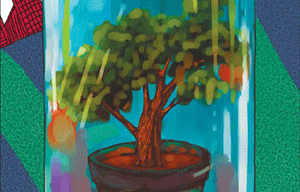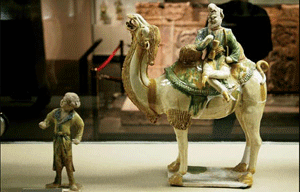Taoists take up natural role for ecology
Updated: 2011-10-26 08:16
By Li Yao (China Daily)
|
|||||||||
HENGSHAN, Hunan - "Taoism is the other faith I would embrace if I was not a Christian," said Martin Palmer, whose love of Taoist deity, the temples, the peace, and the sacred mountains dates back years.
Palmer, the globetrotting secretary-general of the Alliance of Religions and Conversation, began working 16 years ago with the Chinese Taoist Association (CTA), starting with protecting the ecology of sacred mountains.
A successful pilot program on Huashan Mountain in Northwest China's Shaanxi province later convinced the provincial government to give Taoists the authority to manage the mountain, with 10 percent of the ticket revenue at the scenic site to be used for financial support.
Palmer said the Taoists assume their natural role of guardians of ecological balance and do not seek to become masters or controllers of it, only to be part of it.
In 2000, the CTA banned the use of endangered animals such as rhinos and tigers in traditional Chinese medicine.
Another idea that took root was the Three Sticks Movement, which promotes burning only three sticks of incense to reduce pollution caused by burning incense, candles, paper and fireworks on Taoist sites, Palmer said.
Many Buddhist temples such as the Lama Temple in Beijing followed the movement.
It sends the simple message that three sticks are enough - one for heaven, one for earth and one for yourself - and contrasts with consumerism and greed in temples where people offer many incense sticks to the gods and expect more sympathetic ears for their prayers, Palmer said.
Victoria Finlay, Palmer's wife and colleague in environmental activism, recalled a monk from South China's Guangdong province saying at a conference in 2008 that he noticed one day birds were returning as a result of their Three Sticks Movement.
"The curtain of smoke around temples was removed. And we do want more birds to come back," Finlay said.
China has achieved economic prosperity that few would have imagined 20 years ago, but Palmer raised the question whether the country still has compassion and the understanding about how to keep a balance between human needs and the rest of the universe.
Palmer said Taoist wisdom has much to offer not only on issues about sustainability, but also about how to keep people compassionate as well as competitive.
|
Forum Closes A Taoist declaration stressing harmony and sustainable development brought the three-day International Taoist Forum to a close on Tuesday at Hengshan Mountain, Hunan province. Zhang Jiyu, vice-president of the Chinese Taoist Association, read the Nanyue Declaration at the closing ceremony, expressing the vision of a contemporary Taoist community promoting a balanced lifestyle and harmonious co-existence between humans and nature, to help reduce poverty, social inequality and conflicts, and environmental degradation. Wang Zuoan, director of the State Administration for Religious Affairs, said the forum achieved its aim of discovering Taoism's significance in contemporary society and its vision for future development. |











